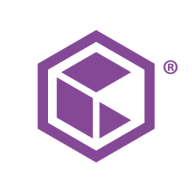

Commvault Cloud and Carbonite Server compete in the data protection category. Commvault Cloud has the upper hand in comprehensive features and robust support, while Carbonite Server is noted for ease of use and cost-effectiveness.
Features: Commvault Cloud offers versatile data management capabilities, extensive backup options, data deduplication, and flexible storage choices. Carbonite Server is known for its simplicity, quick setup, and efficient recovery processes.
Room for Improvement: Commvault Cloud users suggest enhancements in backup speed, a more streamlined setup process, and a reduction in system complexity. Carbonite Server could improve its scalability options, offer more detailed reporting features, and enhance the user interface for better usability.
Ease of Deployment and Customer Service: Commvault Cloud's deployment is comprehensive but complex and time-intensive, with generally praised knowledgeable support. Carbonite Server's deployment is simpler and faster, though customer service receives mixed reviews, with some users noting long response times.
Pricing and ROI: Commvault Cloud has a higher initial setup cost but provides strong ROI due to its extensive capabilities and flexibility. Carbonite Server is more affordable upfront, making it attractive for smaller businesses, though some users feel ROI could be improved with enhanced features.
| Product | Market Share (%) |
|---|---|
| Commvault Cloud | 4.9% |
| Carbonite Server | 0.8% |
| Other | 94.3% |

| Company Size | Count |
|---|---|
| Small Business | 3 |
| Midsize Enterprise | 3 |
| Large Enterprise | 1 |
| Company Size | Count |
|---|---|
| Small Business | 57 |
| Midsize Enterprise | 24 |
| Large Enterprise | 82 |
Carbonite Server securely replicates data to the local backup server while securing a second copy in the cloud. Granular restore and local failover options ensure rapid recovery and minimal data loss. With integrated hardware and cloud failover for critical systems, Carbonite Server provides reliable data protection.
Commvault Cloud is the ultimate cyber resilience platform built to meet the demands of the hybrid
enterprise. Beyond its core functionality of data backup and recovery across diverse workloads, including applications, databases, virtual machines, and files, Commvault Cloud stands out as a robust defense against ransomware. Going beyond backup, the platform integrates advanced data security features such as encryption, access control, and threat detection, safeguarding against unauthorized access and cyber threats.
With tools for data management, classification, and migration, businesses can optimize storage costs, enhance accessibility, and comply with regulations seamlessly. Boasting cloud integration with major providers like AWS, Azure, and Google Cloud, Commvault Cloud leverages the scalability and flexibility of the cloud for comprehensive data protection and management. The platform's automation capabilities streamline tasks, and its reporting and analytics features provide valuable insights into data usage, potential risks, and optimization strategies. Commvault Cloud is not just a security tool; it is a key component of cyber resilience, enabling organizations to not only protect against cyberattacks but also recover swiftly and minimize the impact of incidents. Elevate your cyber resilience strategy with Commvault Cloud.
We monitor all Backup and Recovery reviews to prevent fraudulent reviews and keep review quality high. We do not post reviews by company employees or direct competitors. We validate each review for authenticity via cross-reference with LinkedIn, and personal follow-up with the reviewer when necessary.